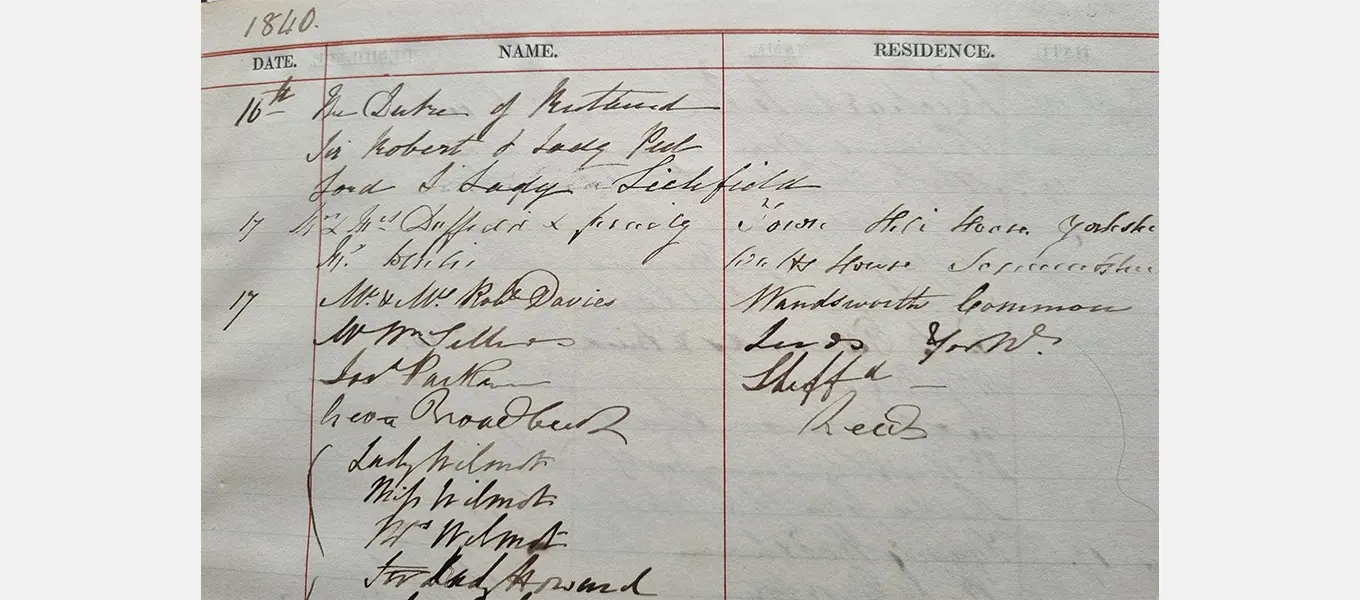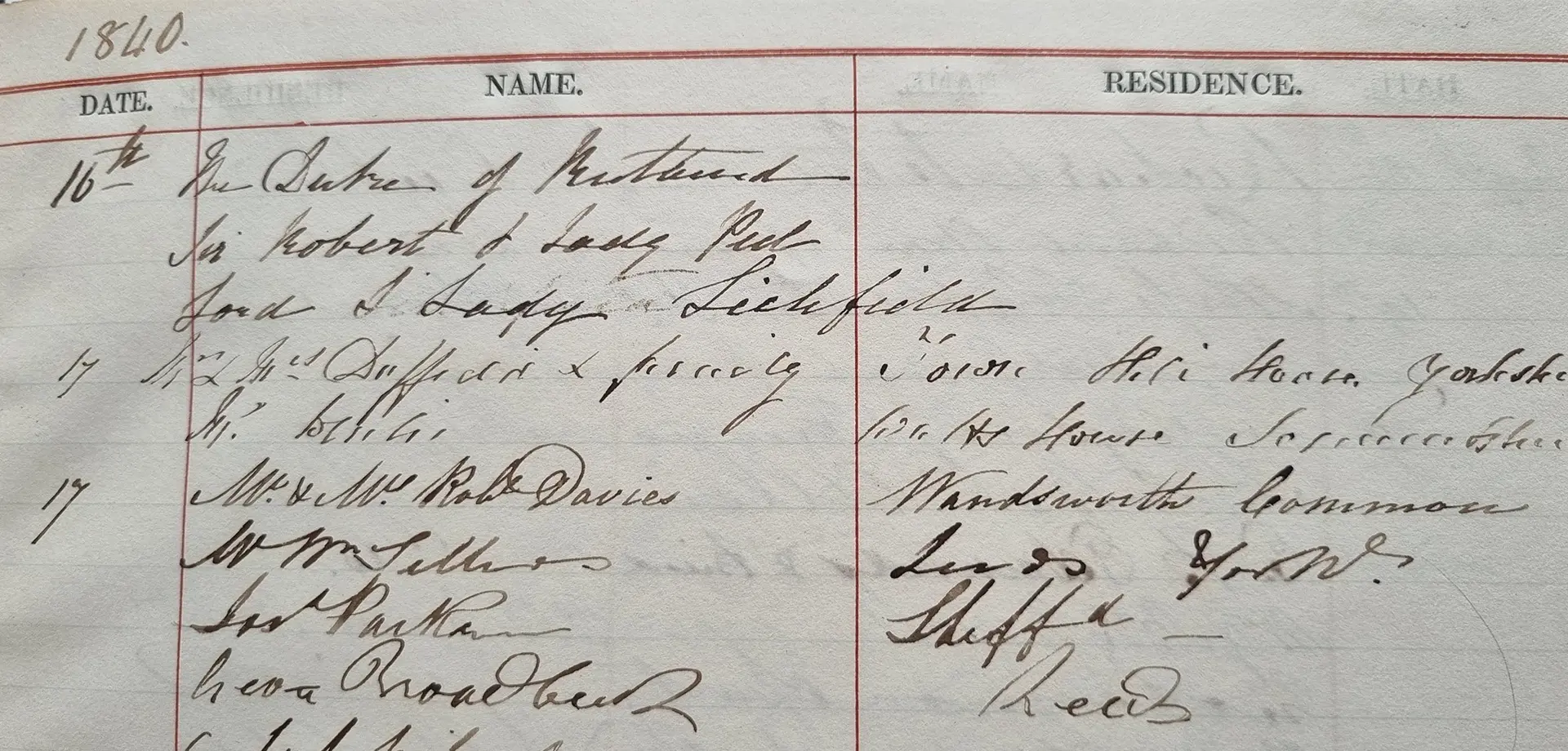On 16 August 1840 a particularly important visitor arrived at Chatsworth. His name was Sir Robert Peel. He had been Prime Minister during 1834-35 and would be again from 1841 to 1846. He made radical and controversial reforms, some of which reverberate today, and one of which cost him the premiership.

Peel was born in 1788, the son of a wealthy textile manufacturer. He entered Parliament in 1809 as a member for the Tory party. In 1822 he became Home Secretary. He reduced the number of crimes punishable by death and simplified the law. In 1829 he did what he is best remembered for today by setting up the Metropolitan Police Force in London. Its officers were not popular at first, but they succeeded in cutting crime. By 1857 all cities in Britain were obliged to have police forces.
Also in 1829 Peel pushed for an important reform to the voting system. Up until then Roman Catholics had been denied the franchise. Peel drew up a bill to grant them the vote and in 1829 it became law. As a result Peel lost the trust of some fellow Tories.
The Whig Party won a general election in 1830, so Peel found himself in opposition. The Whigs made radical reforms, extending the franchise and tackling corruption in politics. Peel became leader of the Tory Party. In 1834 he became Prime Minister. He is credited with reforms that established the Conservative or Tory party in its modern form.
From 1815 to 1846, restrictions known as the Corn Laws applied in Britain. These were tariffs and restrictions on importing cheap grain and they protected wealthy landowners from foreign competitors. However, they kept the prices of basic foodstuffs high and this caused hardship for the poor. In 1846 Peel, then Prime Minister, decided to try and repeal the Corn Laws. He succeeded but at the cost of splitting his party on this issue. Many of the Tories’ traditional supporters were landowners who had benefited from the Corn Laws, and so were horrified to see them repealed. Those who opposed Peel became the modern Conservative Party. His supporters – the Peelites – initially became an independent group, and ultimately joined with the Whigs to form the Liberal Party in 1859. Due to the debacle over the Corn Laws, Peel had to step down as Prime Minister.
We don’t know whether Peel ever visited Chatsworth as a guest of the 6th Duke of Devonshire rather than a general visitor. The Duke was a Whig, but some of his views – such as his support for the Catholic Emancipation Act – coincided with those of Peel.
Peel certainly knew Sir Joseph Paxton – another high-profile figure associated with Chatsworth: Peel was one of the Royal Commissioners for the Great Exhibition of 1851, and he supported Paxton’s design for the Crystal Palace. In June 1850, following a meeting at which Paxton’s scheme was discussed, Peel was thrown from his horse and died of his injuries a few days later. After nearly two centuries his legacy is still with us, most evidently in our modern police forces.






